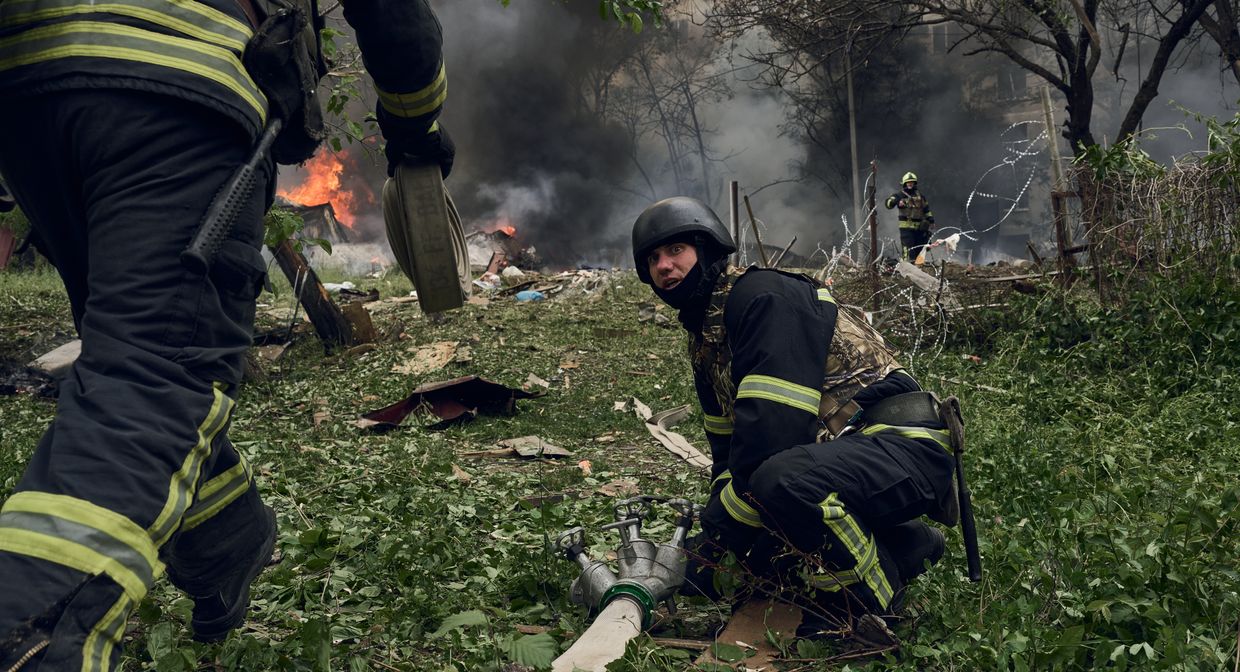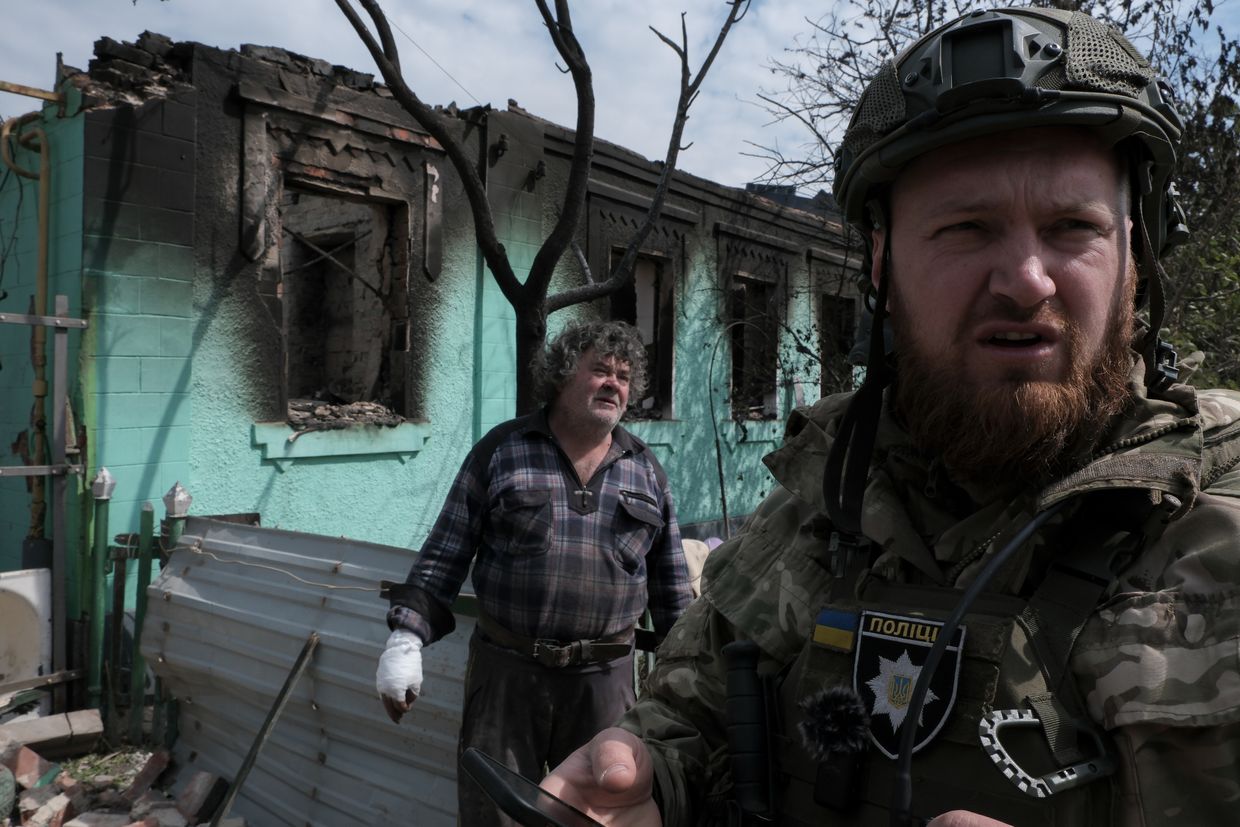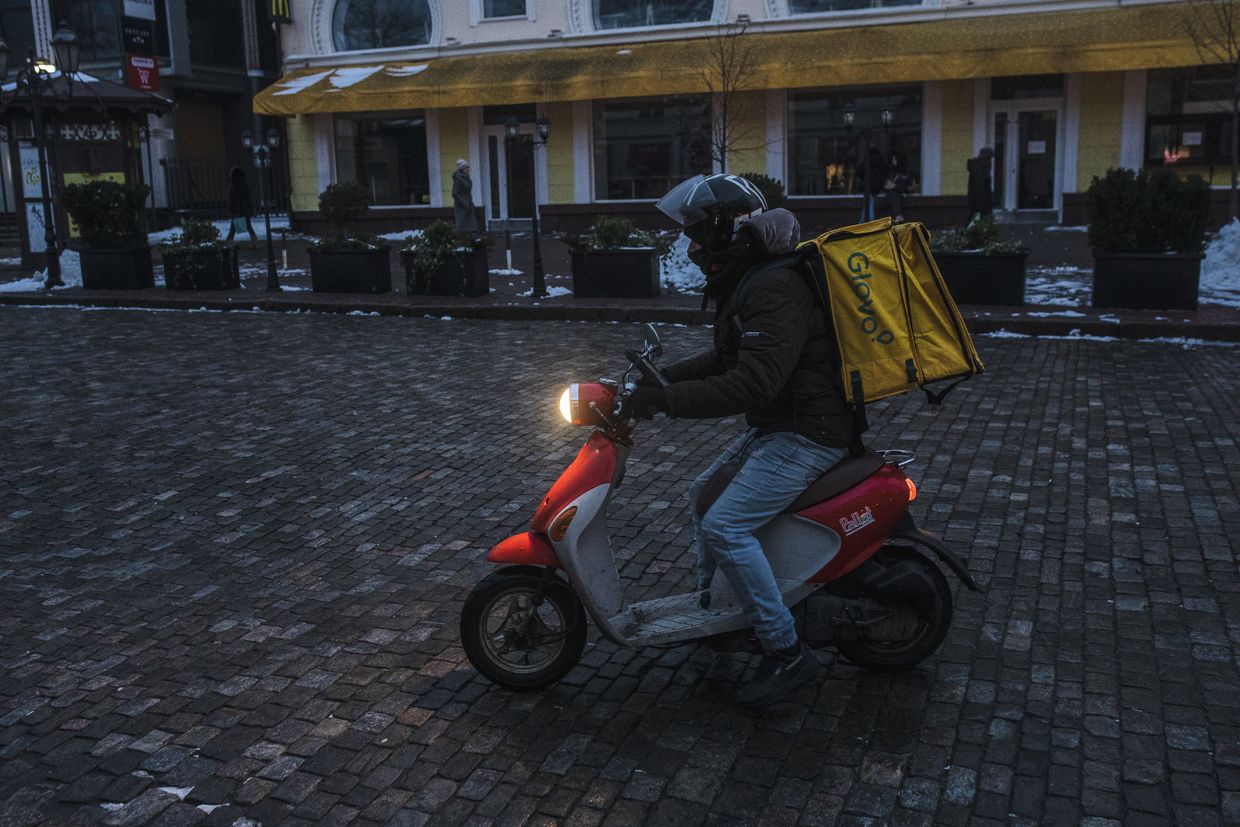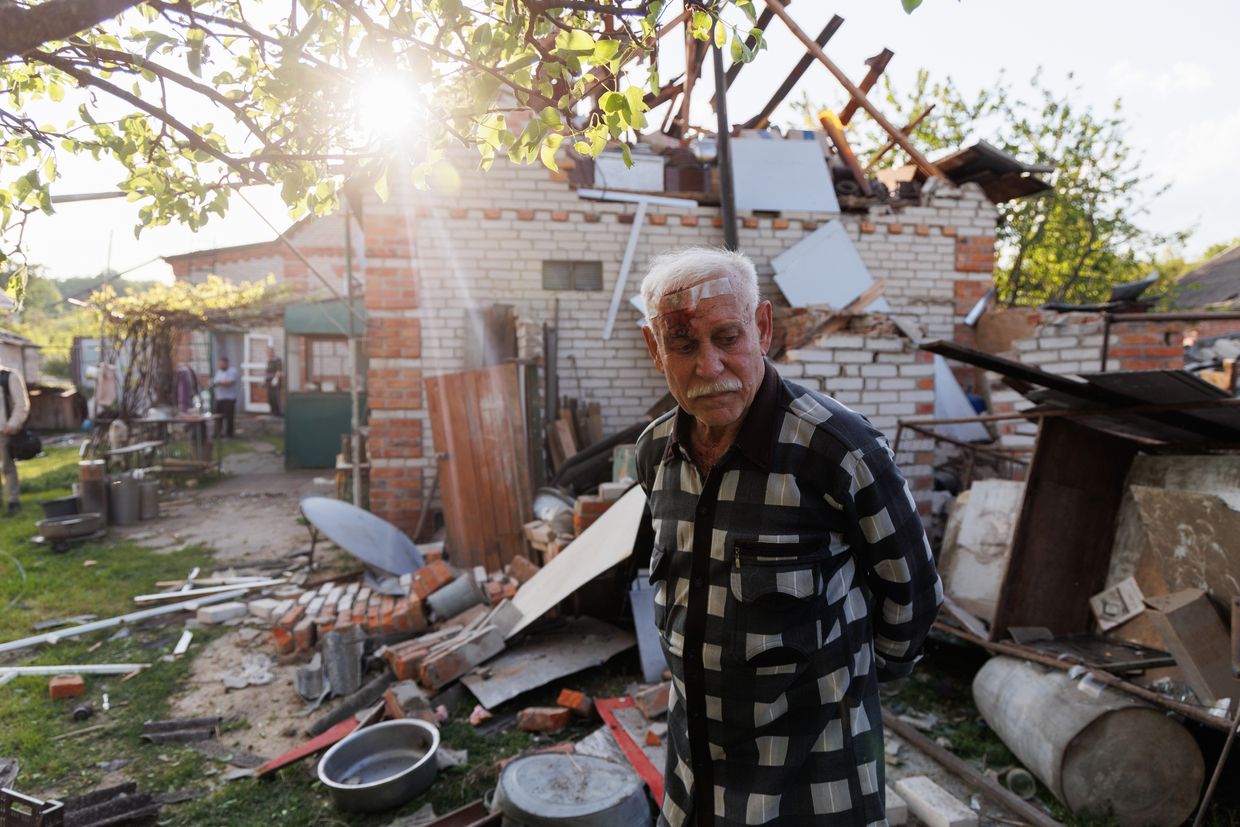Ukraine war latest: Ukrainian drones hit military facilities in Russia, Crimea amid Russian claims of over 100 drones downed

Key updates on May 17:
- Ukrainian drones hit military facilities in Russia, Crimea amid Russian claims of over 100 drones downed
- Zelensky says Russia's Kharkiv Oblast offensive advances as far as 10 km, halted by 1st defense line
- Zelensky signs law amendments increasing fines for draft evaders, allowing some convicts to serve in military
- Police says Russia using civilians in Vovchansk as human shields
Ukrainian drones attacked several military facilities in Russia and occupied Crimea overnight on May 17, a source from the Security Service of Ukraine (SBU) confirmed to the Kyiv Independent.
The source said that it was a joint operation carried out by the SBU and Ukraine's military intelligence agency.
"Today's operation proved that the Russians are unable to protect their main naval bases in Sevastopol and Novorossiysk," the source said.
The Russian Defense Ministry claimed earlier during the day that 102 aerial and six naval drones had been intercepted and destroyed and did not report any damage or casualties.
The drones were targeted at naval bases of the Black Sea Fleet located in occupied Sevastopol and the Russian city of Novorossiysk in Krasnodar Krai, the source said. The attack also impacted a power plant near Sevastopol, leading to power outages.
The port in Novorossiysk is where Moscow began redeploying its Black Sea Fleet after a series of devastating Ukrainian strikes, including a missile attack on its headquarters in Sevastopol on Sept. 22, 2023.
The source also confirmed the drone attack on the oil refinery in the Russian town of Tuapse, located on Russia's Black Sea coast.
The Russian Defense Ministry claimed 102 aerial and six naval drones had been intercepted and destroyed and did not report any damage or casualties. If confirmed, it would be the largest drone attack by Ukraine throughout the entire full-scale war. A previous attack in March saw the Kremlin claiming to have downed 65 drones.
A military intelligence source confirmed earlier for the Kyiv Independent that the agency carried out a successful drone attack against an oil base in Russia's Rostov Oblast on May 15.
The next day, drones hit production facilities of the state-owned Russian weapons manufacturing company "Basalt" in the city of Tula, a military intelligence source told the Kyiv Independent.
Zelensky says Russia's Kharkiv Oblast offensive advances as far as 10 km, halted by 1st defense line
Russian troops were able to advance as far as 10 kilometers (6 miles) deep during their offensive in Kharkiv Oblast, but the front in the region has been stabilized, President Volodymyr Zelensky told journalists on May 16.
Moscow launched a new offensive with 30,000 troops on May 10, targeting Kharkiv Oblast, which is situated at the border with Russia in northeastern Ukraine.
Russian troops have focused their efforts in the directions of Lyptsi and Vovchansk, two settlements a few kilometers south of the border.
Moscow's forces were halted by Ukraine's first line of defense, Zelensky said. They did not reach concrete fortifications, he added.
"The first and second lines are being built by the military, and the third line is built by local authorities. It is the most powerful... simply because it is further from (Russian) weapons, from shelling," Zelensky said.
"The deepest point of their advance is 10 kilometers. In some areas, there was no advance."
Russia sees the town of Vovchansk in Kharkiv Oblast as the target, according to the president.
Ukrainian soldiers are mopping up the streets on the northern outskirts of the town, preventing Russian troops from gaining a foothold, the General Staff reported on May 17.
"In addition to wanting a zone of 10 kilometers, they (Russia) want to keep building on their success if they achieve it. But the main thing today is that our defense forces have stabilized the situation," Zelensky said.
Ukraine has reinforced several sectors with battalions that could be taken "somewhere from the reserve" and from other sectors, the president told journalists.
Russian troops managed to cross the border partially because of Ukraine's lack of air defense systems, Zelensky said.
The president said earlier that Ukraine could prevent Russia from occupying the city of Kharkiv with two additional Patriot anti-air systems.
Zelensky signs law amendments increasing fines for draft evaders, allowing some convicts to serve in military
President Volodymyr Zelensky signed on May 17 law amendments that raise fines for evading draft and other violations of mobilization rules.
This comes as one of the latest changes in Ukraine's legislation aimed at strengthening mobilization efforts.
According to the new legislation, fines for violating the rules of the military register can range from Hr 3,400 ($86) to 5,100 ($130), and for repeated violations, from Hr 17,000 ($430) to 25,500 ($646).
Citizens evading military service during the war will also have to pay fines between Hr 17,000 and 25,500, whereas officials and legal entities will pay from Hr 34,000 ($860) to 59,500 ($1,500).
Fines for the same violation during peacetime will range from Hr 5,100 to 8,500 ($215) for regular citizens and from Hr 17,000 to 34,000 for legal entities and officials.
The bill was approved by the parliament in the second reading on May 9.
Under martial law, Ukrainian men aged between 18 and 60, with some exceptions, are not allowed to leave the country as they may be called up for military service.
Zelensky also signed a law that Ukraine's parliament passed last week, paving the way for the voluntary mobilization of prisoners.
The list of convicted citizens who were allowed to be drafted does not include those convicted of premeditated murder, sexual violence, drug trafficking and production, or crimes against national security.
Based on suggestions of the anti-corruption parliamentary committee, the measure will also exclude lawmakers and top officials imprisoned for corruption, lawmaker Yaroslav Zhelezniak said.
However, the final version of the bill allowed military service for those convicted of involuntary manslaughter, except for cases when the perpetrator was in a state of intoxication.
Police says Russia using civilians in Vovchansk as human shields
Russian forces had captured up to 40 civilians in the Ukrainian town of Vovchansk and are using them as human shields, the police said on May 17.
Ukraine's Defense Ministry confirmed on May 15 that Russian units had entered the northern parts of the town, but the Ukrainian military reportedly prevented them from establishing a foothold deeper in Vovchansk.
Serhii Bolvinov, the head of the investigative department of the police of the Kharkiv Oblast, said on air on Suspilne that up to 40 civilians, most of them elderly, had been taken captive when trying to escape Russian shelling.
"People are kept in basements, interrogated, and those conducting the interrogations call themselves FSB employees," he said.
His comments echo those made by Interior Minister Ihor Klymenko, who on May 16 said Russian forces were taking Ukrainian civilians captive and preventing their evacuation, even reporting cases of executions.
"We know of the first cases of executions of civilians by the Russian military," Klymenko said on his Telegram channel.
Klymenko said that a Vovchansk resident was killed by Russian soldiers after he refused to obey their orders and attempted to escape on foot. Police investigators had opened a criminal case on the grounds of violations of rules of war.
As of February, the United Nations High Commissioner for Human Rights (OHCHR) has verified 30,457 civilian casualties, including 19,875 injured, as a result of Russia's full-scale invasion of Ukraine.
The OHCHR noted that the real number is likely higher. Russia does not allow monitoring in occupied territories, some of which likely suffered the heaviest costs in civilian lives, such as Mariupol.
A U.N. report from last December said that the international organization had documented 142 cases of summary executions of Ukrainian civilians by Russian forces.















